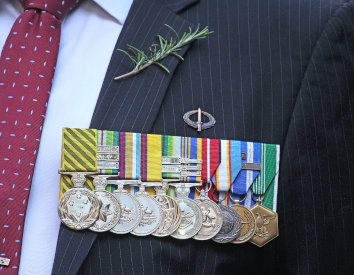Following rumours and allegations about the conduct of members of the Australian Defence Force (ADF) in Afghanistan between 2005 and 2016, the Inspector-General of the Australian Defence Force Afghanistan Inquiry (the Inquiry) was conducted. The findings of the Inquiry were released on 19 November 2020.
This article explores the findings of the Inquiry and the role of the Australian Government’s Office of the Special Investigator (the Office) in reviewing and dealing with these findings, as outlined by the Office.
Findings of the Inquiry
The Law of Armed Conflict and International Humanitarian Law prohibit as war crimes the murder and cruel treatment of non-combatants and persons who are hors-de-combat (out-of-the fight because they have been seriously wounded, or have surrendered or been captured) in an armed conflict. These binding international law obligations are implemented in Australian criminal law and apply to all Australian Defence Force members.
The Inquiry found that there is credible information of 23 incidents in which one or more non-combatants or persons hors-de-combat were unlawfully killed by or at the direction of members of the Australian Defence Force which, if accepted by a jury, would be the war crime of murder, and a further two incidents in which a non-combatant or person hors-de-combat was mistreated in circumstances which, if so accepted, would be the war crime of cruel treatment. The findings are elaborated on in the extensive Inquiry Report.
Role of the Office of the Special Investigator
The Office of the Special Investigator is responsible for reviewing the findings of the Inquiry. The Office:
- Works with the Australian Federal Police (AFP) to investigate crimes under Australian law arising from or related to any breaches of the Laws of Armed Conflict by members of the Australian Defence Force in Afghanistan from 2005 to 2016.
- Develops briefs of evidence in respect of any offences that are established, for referral to the Commonwealth Director of Public Prosecutions (CDPP).
- Undertakes other relevant tasks the Prime Minister and the Minister require from time to time.
Witness protections
Witnesses who provided evidence to the Inquiry were afforded certain legal protections whereby the evidence provided will be inadmissible in criminal proceedings against the individual who provided it. An accused person has other fundamental rights, such as the privilege against self-incrimination and the broader right to silence.
Key takeaways
The Office of the Special Investigator is tasked with reviewing the findings of the Inquiry into alleged war crimes by the Australian Defence Force in Afghanistan between 2005 and 2016, and working with the AFP and CDPP to bring offenders to justice. Witnesses who provided evidence to the Inquiry have been afforded legal protections.



